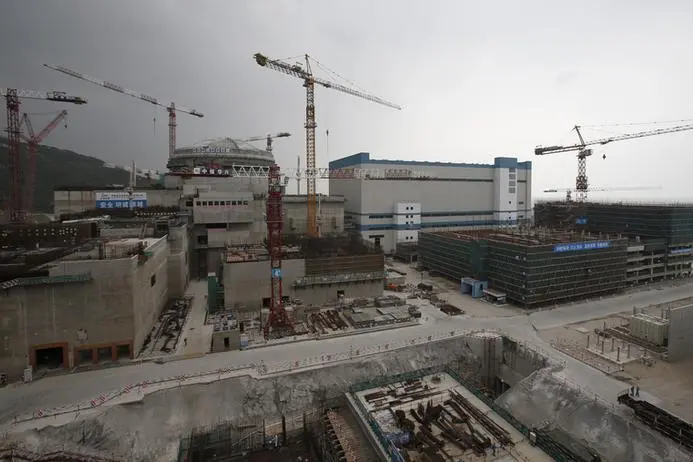In a bid to bolster the advancement of nuclear power, China is gearing up to revise its atomic energy law, as reported by the official Xinhua news agency.
In a bid to bolster the advancement of nuclear power, China is gearing up to revise its atomic energy law, as reported by the official Xinhua news agency. The proposed amendments aim to fortify the regulatory framework surrounding nuclear power while fostering the research, development, and competitiveness of China’s domestic nuclear industry.
The draft of the amended law has been presented for deliberation at an ongoing session of the standing committee of the National People’s Congress. Among its key provisions, the revised law seeks to streamline the regulatory system governing nuclear power, thereby facilitating smoother operations within the industry.
Furthermore, the proposed amendments include measures to enhance safety protocols for the handling of nuclear fuel, as well as its import and export. Xinhua emphasized that these revisions are crucial for upholding China’s reputation as a responsible nuclear power.
China currently boasts the largest nuclear fleet globally and has set ambitious targets for expanding its nuclear energy capacity. With aims to generate 10% of its electricity from nuclear power by 2035 and 18% by 2060, the nation is aligning its energy strategies with objectives related to security and decarbonization.
Despite these aspirations, projections by researchers from Norwegian consultancy DNV paint a more conservative picture of China’s nuclear energy trajectory.
According to their forecasts, nuclear power is anticipated to contribute only 5% of China’s electricity by 2050, accounting for approximately 29% of global nuclear energy generation. Nuclear energy is a form of energy released from the nucleus, the core of atoms, made up of protons and neutrons.
While China’s nuclear energy ambitions remain lofty, the proposed revisions to its atomic energy law signify a proactive approach towards addressing regulatory frameworks and safety standards within the nuclear sector. As the nation continues to navigate its energy transition, the evolution of its nuclear policies will play a pivotal role in shaping its energy landscape for years to come.
